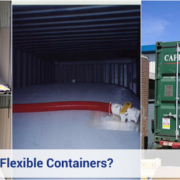Why Opt For Flexible Containers?
Given that the need of the hour is to move toward more Eco-friendly and sustainable alternatives in our everyday life, it comes as no surprise that companies of consumer goods have begun switching from traditional packaging to flexible packaging substitutes. The reason why flexible containers are increasingly being seen as an effective alternative is because they are more environment friendly than their alternatives. Apart from that, flexible containers come with a whole host of benefits.
Lighter in Weight
Flexible packaging is seen to be significantly lighter than traditional packaging. The reason this is important is because it leads to a smaller carbon footprint in the environment. This is because the transporting involves more product and less packaging. While a lot of chips bag, granola bags and even disposable shopping bags come with a polyethylene film which is recyclable however, these bags were not easy to separate at scale at recycling facilities due to contamination problems and the value to collection costs ratio besides these constantly get stuck in the machinery.
Greater Resilience
Flexible packaging containers are certainly more durable than the previous alternatives thus making them a good option to protect products from impact damage. The previous rigid packaging alternatives would have certainly damaged either the packaging itself or the exterior of the product if it was accidentally dropped during transit. This resilience and durability of FIBCs results in fewer product returns and less customer complaints.
Transport is Cheaper
Since flexible containers weigh considerably less when compared to their rigid counterparts, it means that the transport and shipment for both domestic as well as international distribution won’t be too expensive. This holds particularly true when you are looking at small product runs.
Eco-friendly
On an average, when compared to its counterparts, flexible packaging makes use of much less plastic thereby generating lesser waste. With constant development being done, the end of life options for flexible containers have also increased significantly. By adding a certain additive into the material when making these FIBCs, the containers’ decomposition process can be hastened, prompting it to happen even as early as 18 months.
Increased Durability
The flexible packaging that is now getting into the market is seen to contain a certain barrier material that is useful in blocking the effects of the sun and protecting the product from moisture, bacteria, grease, oxygen and the rest.
Sustainability
Flexible packaging also has a lot of benefits up its sleeve when it comes to sustainability. A majority of flexible containers actually uses about 85% less energy in their production process than rigid packaging. More often than not, they are entirely recyclable and utilise mostly biodegradable and recyclable material in their making. Besides, as these are flexible, this gives them greater space to support extra products thereby allowing a larger quantity to be transported in the process. At the same time, this would reduce fuel costs as well as carbon dioxide emission thereby making it the perfect alternative.
These are just some of the many reasons why opting for flexible containers is a good option. Rishi FIBC offers wide range of flexible containers to meet specific needs of its clients in India and abroad. We also offer customized bags that are tailor-made to meet the needs of our clients.

